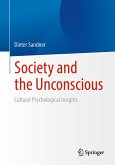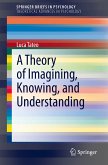`There is much that is fascinating here. Long-established experiments and conclusions are rubbished and reinterpreted, long-established assumptions and beliefs about emotions are soundly trounced, and generally a good going-over is delivered to the whole field... it is such a blockbuster that one can only reel backwards and tell anyone studying the subject that they would be crazy not to get it' - Self & Society
This fascinating book overviews the psychology of the emotions in its broadest sense, tracing historical, social, cultural and biological themes and analyses. The contributors - some of the leading figures in the field - produce a new theoretical synthesis by drawing together these strands.
From the standpoint of the function of the emotions in everyday life, the authors focus on: the discursive role played by the emotions in expressing judgements about, attitudes to and contrition for actions done by the self and others, and how certain emotions - such as guilt, shame, embarrassment, chagrin and regret - seem to play a role in social control; the variation and diversity in emotion, which provides scope for exploring how patterns of emotion contrast in different societies, across gender lines, at different historical times, and between children and adults; and the way in which the body is shaped and its functions influenced by culturally maintained patterns of emotion displays.
This fascinating book overviews the psychology of the emotions in its broadest sense, tracing historical, social, cultural and biological themes and analyses. The contributors - some of the leading figures in the field - produce a new theoretical synthesis by drawing together these strands.
From the standpoint of the function of the emotions in everyday life, the authors focus on: the discursive role played by the emotions in expressing judgements about, attitudes to and contrition for actions done by the self and others, and how certain emotions - such as guilt, shame, embarrassment, chagrin and regret - seem to play a role in social control; the variation and diversity in emotion, which provides scope for exploring how patterns of emotion contrast in different societies, across gender lines, at different historical times, and between children and adults; and the way in which the body is shaped and its functions influenced by culturally maintained patterns of emotion displays.
Dieser Download kann aus rechtlichen Gründen nur mit Rechnungsadresse in A, D ausgeliefert werden.
`There is much that is fascinating here. Long-established experiments and conclusions are rubbished and reinterpreted, long-established assumptions and beliefs about emotions are soundly trounced, and generally a good going-over is delivered to the whole field... it is such a blockbuster that one can only reel backwards and tell anyone studying the subject that they would be crazy not to get it' - Self & Society `The book consists of a series of erudite chapters on a wide array of emotions, including regret, hope, embarrassment and grief. It includes new research on emotion, but also incorporates a number of older key works, such as a chapter by Darwin on blushing. The book provides insight into why the biological perspective has dominated psychological explanations of emotion... A strong feature of the book is its emphasis on a range of emotions beyond the "basic" emotions. In order to explain other emotional reactions, theorists find it necessary to draw on social and cultural features... the book... forces more biologically inclined readers to consider whether their theories can be applied to the rich array of emotions' - The Psychologist









